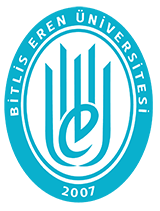An Investigation of Optimal Power System Designs for a Net Zero Energy House: A Case Study of Kahramanmaraş
Abstract
This paper aims to optimize the power system design of a vineyard house in Pazarcık, Kahramanmaras. In this process, the electrical energy demand is met by the hybrid Photovoltaic-Wind-Diesel-Battery system because the vineyard house is remote from the electric network. The vineyard house is located in Karagol, southern of Pazarcık. During the summer in Karagol, many people stay in and visit the vineyard houses. However, the vineyard houses are generally unoccupied in winter. Therefore, an economical energy source is required in this process without compromising life quality. Capital costs are high and the running costs are low for stand-alone renewable sources. On the other hand, it is the opposite for stand-alone diesel power generators. This study is designed to take these circumstances into consideration. The optimal design is investigated for a hybrid system of renewable energy sources and a diesel power generator. The Homer software is used during this process. The realized design is evaluated in terms of its technical and environmental aspects. As a result of the study, 6 kW photovoltaic panels, a 1 kW wind turbine, a 1 kW diesel generator, a 2-kW converter, and an optimally sized 8-unit battery system are used to meet the electricity needs of the vineyard house. The renewable energy factor is 99.8% for a vineyard house. This value is an acceptable rate for a net zero energy house. This study shows that the hybrid system meets the house's electric energy demands and has a positive impact on the environment by reducing greenhouse gas emissions.
Collections

DSpace@BEU by Bitlis Eren University Institutional Repository is licensed under a Creative Commons Attribution-NonCommercial-NoDerivs 4.0 Unported License..













